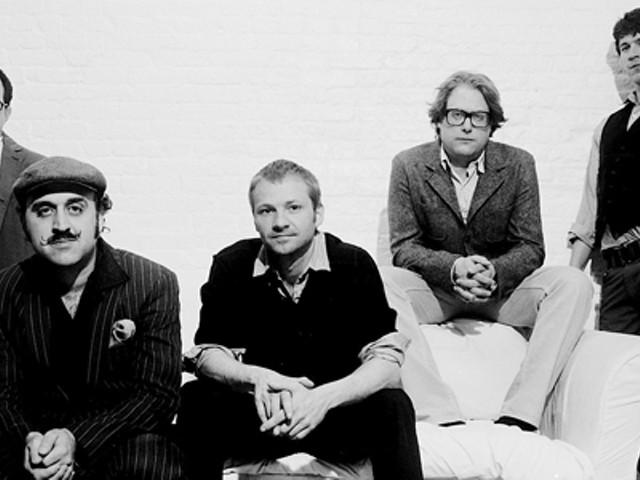If you’re like me and a record number of our fellow Americans, you will be taking an hour or so out of your busy Tuesday schedule Nov. 4 to exercise your fundamental right to participate in a free, fair and open election (we hope).
As you are no doubt aware, this is a historic election for complex reasons of race and gender that you probably already understand intuitively, even though you may not be able to fully and/or eloquently explain this without shuddering at the realization of your own internalized biases. This is a good thing, to check one’s perceptions. Many have been forced to in a real, coherent way. That is why, in some part, we have seen both a surge in white-person support for Obama and a rash of racism from a minority of McCain-Palin supporters.
Strip away the vicious, wrongheaded campaigning, lying and race-baiting from McCain-Palin and their surrogates, as well as Obama’s 30-minute network special and the overwhelming fundraising that has perhaps neutralized the prospect of campaign finance reform, and this election will say a lot about the current character of America.
If the winner is Barack Obama, it will signal an elemental shift in the way we practice the politics of governance. It will also signal that this country does, in fact, teeter on a political fulcrum, and that after an experiment in the extremism of attempted tyranny, we are grasping toward the center.
If the winner is John McCain, it will explain to the world that Bush has not been an aberration, that we are indeed a country who puts its first before its last, endorses torture and world war for purposes of the national economy, provides for the socialization of debt and further privatization of profit (Obama endorses this, too), and believes that one particular organized religion should dictate law above others.
While I abhor that notion fully, if it is the case, at least we’ll know where we stand.
Tied up in all that testy rhetoric, of course, are actual issues affecting our communities, country and world. Here are a few I’ll be considering in the voting booth:
1. Affordable Housing. The Metropolitan Housing Coalition released its annual report this week, and the results are sadly predictable. We have not figured out how to more evenly disperse subsidized housing, which remains concentrated in poor areas of the city. Part of the reason we cannot do that is federal grant money for rebuilding communities has dried up under the Bush administration. There are some 7,600 homeless students enrolled in public schools in Jefferson County — 300 more than last year.
The MHC report focused specifically on rising home-energy costs and how we’re dealing with them amid an economy that is not matching those rises with bumps in income. We’re falling short there, too.
“So — look at our immediate need. Prices for gas heating will be 20 percent higher than last year and we need to make sure we take care of our people,” says Cathy Hinko, executive director of MHC. “Long term, we need to rehabilitate older housing stock to be energy efficient.”
2. Mountaintop removal mining. The practice of exploding the tops of mountains to get at the coal seams below and dumping the excess into valleys and streams is devastating both the environmental and economic landscapes of eastern Kentucky and the Appalachian region. Most politicians don’t seem to care, offering lip service if anything. In the Kentuckians for the Commonwealth 2008 Voter Guide, Barack Obama says the traditional “either-or” proposition of MTR or no mining at all is a false dichotomy, and that he would explore policies to curb the environmental hazards of MTR. Blah blah. John McCain did not respond to the KFTC questionnaire. In fact, only three Republicans out of nearly all the races on Kentucky ballots bothered to respond. Most Democrats did, although John Yarmuth — the only national politician from Kentucky currently calling for a stop to MTR — did not.
3. Tax cuts. My annual income is nowhere near $250,000. Yes, I’d like a tax cut. I’d also like a cut in military spending — via a wide-scale reduction of America’s military presence in the world — and a higher tax on the richest Americans to help pay for it.
I believe the phrase “redistribution of wealth” does not necessarily mean “socialism,” and that discounting the fundamental notion of redistributing some wealth at a time when wealth in America is polarized more than any other time since the Great Depression is, frankly, farcical.





